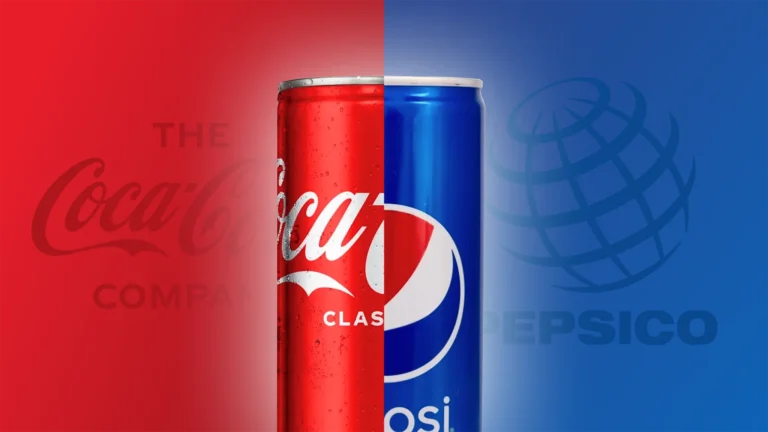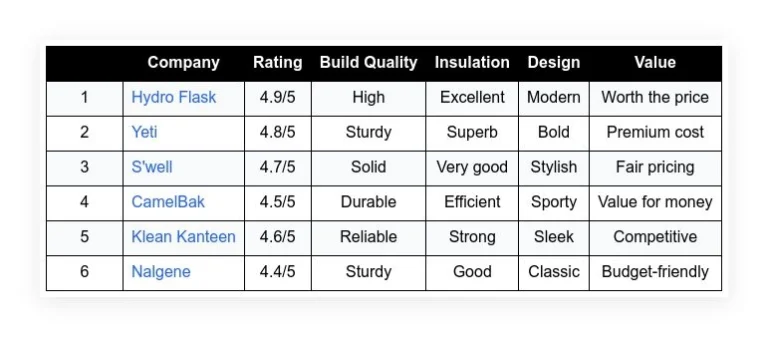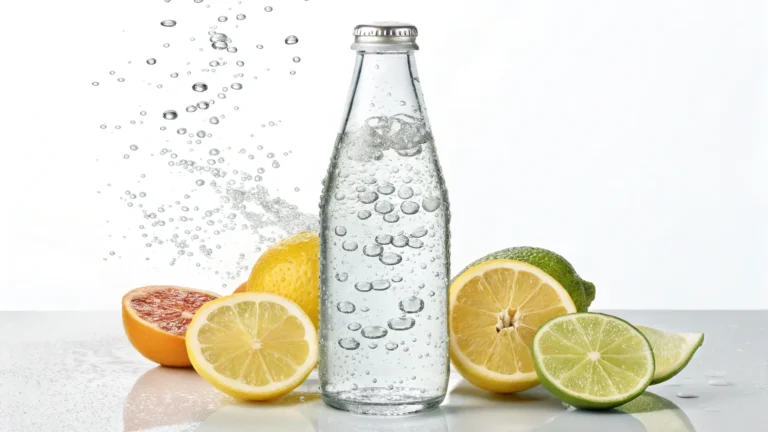A recent study highlights a possible link between carbonated water and weight loss. Researchers have investigated how the carbonation in sparkling water might help control blood sugar levels and promote weight loss by affecting the body’s metabolism.
Understanding the Study Findings
The study, published in an academic nutrition journal, discusses the ways sparkling water could play a role in weight loss. The research focuses on the effect of carbon dioxide (CO₂) that is naturally present in sparkling water. When consumed, the CO₂ is absorbed into the bloodstream and may promote biochemical changes that lead to metabolic improvements.
Scientists explained that once sparkling water is ingested, the carbon dioxide permeates the stomach’s capillaries and enters the bloodstream. From there, it reaches the red blood cells where an enzyme called carbonic anhydrase converts the CO₂ into bicarbonate. This transformation causes the interior of the red blood cells to become less acidic. As a result, they break down glucose for energy more rapidly. This process may reduce blood glucose levels, an effect similar to changes seen in certain blood filtration treatments.
Mechanism Behind the Process
When sparkling water is consumed, the body undergoes a chain of events that could lead to weight management benefits:
- Absorption of CO₂ through the stomach’s capillaries.
- Penetration of CO₂ into red blood cells through lipid membranes.
- Conversion of CO₂ into bicarbonate by carbonic anhydrase.
- A shift toward a more alkaline environment within the red blood cells.
- An increase in the breakdown of glucose for energy, known as glycolysis.
This chain of events supports the idea that regular consumption of sparkling water could help reduce blood sugar levels, which might indirectly support weight loss strategies.
Expert Insights and Comparisons
The report draws a comparison between the impact of sparkling water and the effects observed during a common blood filtration treatment. It suggests that a similar mechanism of lowering blood glucose levels can be observed. In one noted study from 2004, researchers observed lower blood sugar levels in patients undergoing blood filtration treatments. This correlation provided an interesting angle on how everyday beverages may produce metabolic changes.
“When carbonated water is consumed, CO₂ is absorbed into the blood vessels in the stomach. This CO₂ rapidly penetrates the lipid membranes of red blood cells and is converted into bicarbonate ions. This process increases the alkalinity, which promotes glycolysis, consuming more glucose and lowering blood sugar levels,” explained Akira Takahashi from the Dialysis Center at Tesseikai Neurosurgery Hospital in Shijonawate, Japan.
The insights from Akira Takahashi emphasize the critical connection between an everyday beverage and its potential effect on metabolism. His explanation provides a clear view into the biochemical reactions that occur after sparkling water is ingested.
Potential Weight Loss Benefits
One of the primary reasons individuals are interested in this study is the possibility of using sparkling water as a natural aid for weight loss. The following points summarize the potential benefits discussed:
- Enhanced Feeling of Fullness: Drinking sparkling water may increase sensations of satiety, reducing the likelihood of overeating.
- Lowered Blood Sugar Levels: Through the production of bicarbonate in red blood cells, sparkling water promotes a faster metabolism of glucose.
- Indirect Support for Weight Loss: By managing blood sugar, the body may maintain a more balanced metabolism, which can be an important link to weight management.
These points suggest that including sparkling water as part of a balanced diet may offer an additional tool for those looking to manage their weight.
Additional Considerations
While the study presents promising insights, readers should keep in mind that the research is part of an ongoing effort to understand how everyday foods and drinks impact our bodies. More evidence is needed to determine definitive effects and optimal consumption patterns.
It is important to note that the observed effects of sparkling water on weight loss primarily relate to its impact on blood sugar levels. This highlights a potential indirect role in weight management rather than a direct link to fat burning.
Healthcare professionals suggest that while sparkling water can be included in a healthy lifestyle, it should not replace other effective weight loss practices. A balanced diet, regular exercise, and proper sleep remain the most reliable components of a weight loss program.
Context in Everyday Life
Many people choose sparkling water for its crisp taste and refreshing quality. It is often enjoyed as a healthier alternative to sugary beverages. The emerging research adds another layer to its appeal by suggesting that the drink might also have metabolic benefits.
Consumers are encouraged to integrate sparkling water into their regular hydration habits. Although the benefits are still being defined, moderate consumption of carbonated water might support broader efforts to maintain a healthy weight.
Nutrition experts also stress that a single beverage is unlikely to produce dramatic changes in weight alone. Instead, what matters most is the overall lifestyle—including diet, physical activity, and sleep patterns.
Health Implications and Future Directions
The potential benefits of sparkling water open up interesting questions regarding everyday dietary choices and chronic conditions such as diabetes. The lowered blood sugar levels observed in the study may offer a supplementary benefit to individuals managing blood glucose fluctuations.
Future research is needed to identify the long-term effects of regular sparkling water consumption. Careful studies may further reveal whether these metabolic changes can result in sustained benefits over time. Additionally, researchers might explore if similar results are found in more diverse populations and different age groups.
The ongoing research could also extend to compare the effects of naturally carbonated water with artificially carbonated options. If natural carbonation consistently shows better outcomes, this could influence how beverages are prepared and marketed.
Key Takeaways
The study presents a clear chain of events that starts with the ingestion of sparkling water. This chain leads to a potential reduction in blood sugar levels through the following process:
- CO₂ absorption in the stomach enters the bloodstream.
- CO₂ transforms to bicarbonate in red blood cells.
- This shift results in more efficient glucose metabolism.
- Improved glucose metabolism may support weight loss efforts.
Expert commentary by Akira Takahashi reinforces this link. His insights tie the metabolic process back to common health challenges, emphasizing a possible natural benefit from a simple beverage choice.
Implications for Daily Routines
For many, this research represents a bridge between everyday consumption habits and broader health outcomes. Individuals seeking to better manage their weight might consider including sparkling water in their diet. The beverage not only provides hydration but may also support the body’s normal metabolic function.
It is important to view these findings within a broader health context. Nutrition and physical activity choices have long been recognized as pillars of well-being. Adding sparkling water into a balanced diet could be one small yet meaningful adjustment for some consumers.
The findings encourage further examination of common foods and beverages. Even familiar drinks like sparkling water might have benefits that extend beyond basic hydration. These insights stimulate a closer look at how small changes in daily routines can cumulatively support better health outcomes.
Final Thoughts
The recent investigation into sparkling water highlights its potential role as part of a weight management strategy. The clear link between CO₂ absorption, bicarbonate conversion, and increased glucose metabolism provides an interesting perspective on how simple dietary choices can influence overall health.
While additional studies are necessary to solidify these observations, the research sparks a conversation about everyday choices and their benefits. For those who enjoy carbonated beverages, this study offers a new reason to consider sparkling water as an alternative to sugary drinks.
Integrating sparkling water into daily hydration practices might serve as a helpful addition to other healthy habits. Consumers are advised to combine such choices with regular exercise and a balanced diet, ensuring that any potential benefits are part of a broader, health-conscious lifestyle.
Ultimately, the research presents a positive outlook on a common beverage. Sparkling water, enjoyed in moderation, might contribute to a healthier metabolic process and support efforts in weight management. As researchers continue to study these effects, it is recommended that individuals remain aware of their overall lifestyle choices and consider a range of factors for optimal health.
Frequently Asked Questions
Q: Can sparkling water really help control weight?
Some research suggests that the carbonation in the water may help lower blood sugar by increasing glucose metabolism. However, it is best to include it as part of a balanced diet and healthy lifestyle.
Q: How does the carbonation affect the body?
After drinking sparkling water, the carbon dioxide is absorbed, converted into bicarbonate by red blood cells, and may help the cells break down glucose more effectively, which can have an impact on blood sugar levels.
Q: Should people switch from sugary drinks to sparkling water?
Replacing sugary beverages with sparkling water might reduce calorie intake and offer some metabolic advantages. However, it is important to maintain overall healthy eating and activity habits for effective weight management.










